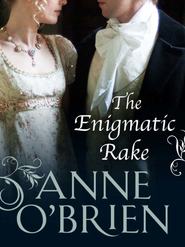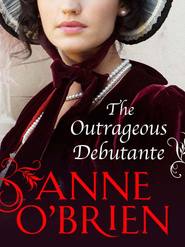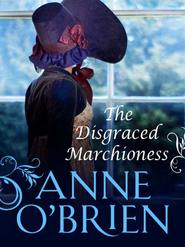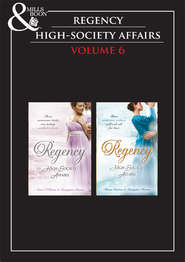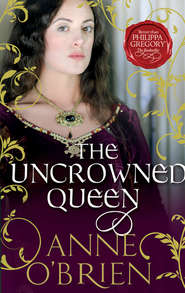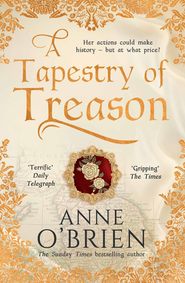По всем вопросам обращайтесь на: info@litportal.ru
(©) 2003-2024.
✖
The Shadow Queen: The Sunday Times bestselling book – a must read for Summer 2018
Настройки чтения
Размер шрифта
Высота строк
Поля
I lifted my eyes to the Bishop who was nodding encouragingly. My voice was clear and cool. No hesitation. No stammer. Had I not made my decision? I would not go back on it now.
‘Volo.’
Momentarily I closed my eyes, held my breath, anticipating the bolt of lightning that would strike me down, for surely God would judge my vow and find me wanting. Or some busy person in the congregation would decry me false.
Nothing. No flash of light, no voice raised in condemnation.
Behind me, my mother’s sigh was almost audible. Will’s hand closed convulsively around mine so that I winced a little as we exchanged an awkward nuptial kiss.
‘I wasn’t sure you would go through with it,’ he whispered, his cheek pressed to mine.
The ceremony continued. The drama had been played out, brought to its glorious, heart-stirring end by the choral offering of glory to God. I imagined most of our companions were now anticipating a warming cup of spiced wine before the overblown festivity of the wedding feast. I was the wife of William Montagu. One day I would be Countess of Salisbury. William and I would be cornerstones in Edward’s splendid court, our children securing the Salisbury inheritance for all time.
Why had I abandoned all my professed principles of honour and loyalty to the vows I had made to Thomas, rejecting at the eleventh hour all my fine words that I would never join my hand with that of William Montagu because it would be invalid for me to do so? Many would deem me weak, easily influenced, readily submitting to minds and wills stronger than my own; or to a streak of pure worldly ambition as wide as the River Thames. I could imagine the scorn at my sudden inexplicable change of heart.
Was I driven by an ambition to be Countess of Salisbury in the fullness of time? Surely it was a more advantageous future for a royal daughter to be Countess of Salisbury, rather than the wife of a mere household knight, living on a meagre income? Perhaps it was family pressure, too great to withstand, ultimately being dragged to the altar by a determined mother who issued dire threats of my being forced to take the veil if I continued in my disobedience. Or, in the end, did I just give up hope and submit to the easiest path?
It might be that many a daughter, caught out in the sin of worldly disobedience, would do exactly that.
So why did I abandon my oft-repeated intent with such glib readiness? Because in the closing days of the old year my duty had been made as clear to me as the brilliant glitter of my new collar. Thus I had walked of my own volition to place my hand in Will’s. Once more I had taken these new vows without threats.
Let the world judge me, as it doubtless would, the chroniclers dipping their pens in poisonous ink when they discovered what I had done. At best I would be deemed a pawn in the maw of family political intrigue. At worst an ambitious power-seeker, acting with cold and cruel dispassion, abandoning one husband for a better.
I cringed at the worst.
But so be it. I could keep my own counsel. Who would be interested in my reasoning? The deed was done and there was no hand to it but my own.
Let the world judge as it wished. I raised my head to acknowledge Will’s faint smile of relief, and later, as we shared a marital cup of wine, our lips matching on the rim to the murmured appreciation of the glittering aristocratic throng, there was only one thought in my mind.
I would have to face the repercussions when Thomas returned to England.
I must be strong enough to bear it.
It might be that I was now the wife of William Montagu in the eyes of God and Man and the King of England. It might be that King Edward’s cheerful beneficence was marked by his allowing my distant father-in-law to grant property to Will and myself. It might be that we had an allowance which I was able to spend on the fripperies of life. It might be that we were in possession of the manor and lordship of Mold in North Wales and the eventual reversion of the manor of Marshwood in Devon, where we could establish our household if and when we so chose; both of them too far from court for my liking.
All of that might be true, but there were few changes in my life at this time.
We did not live in our new properties; I did not even visit them. My life, and Will’s also, was still fixed at the peripatetic court wherever it decided to travel and put down its temporary roots. I continued my education. Will continued to flourish as a future knight. I could not imagine living alone with my own household, far from the centre of court and the intrigues of government. This was what I had known my whole life. I could not imagine having no one with whom to have an intelligent conversation other than Will, Countess Catherine or Lady Elizabeth.
But then neither could I imagine living in isolation with Thomas Holland on some estate near Upholland in the far distant and drear reaches of Lancashire.
Yet Will and I preserved, in a superficial manner, the appearance of a married couple. We had plenty to say to each other when we met. At meals. At receptions. At embassies. At the hunt. We were the Earl and Countess of Salisbury in waiting. Will made a point of coming to see me every day.
Sometimes he kissed my cheek if no one was watching.
More often than not he made do with a salute to my fingers.
I curtsied and bade him welcome.
The livery collar – for was I not now a Salisbury possession? – was placed in Countess Catherine’s jewel coffer for safe keeping while Will and I danced, our steps matching with some exactitude. We had danced together since we were both old enough to stand. We had a lifetime of familiarity between us to give us an ease in each other’s company. Seeing us together, my mother, relaxed, decided that she could afford to smile on me. So did Countess Catherine. And Queen Philippa.
Will was my friend. Despite the vows and the priest’s solemn words, we lived as we had always lived since we were still considered too young to share a marriage bed. Indeed, Will, his age the same as mine, seemed content to wait. I prayed that he would continue to be so. My mind was full of waiting. I could speak to no one, although I did try.
‘What will you do when Thomas returns?’ I asked Will.
‘I doubt he will ever return now. How long has he been gone?’
‘A year.’
‘My mother says that he is dead.’
I pursed my lips.
‘You don’t miss him, do you?’ Will sounded anxious.
How could I say yes? It was a strange sort of missing. How could I miss a life I had never experienced? Sometimes it seemed that Thomas was disappearing into a distant void. To my shame, recalling his features was no longer an easy task.
‘You are my wife, Joan.’ It was the ultimate statement of possession.
‘I acknowledge it.’
‘And Thomas Holland is assuredly dead.’
Thus Will had it fixed in his mind that Thomas would never return to cast a cat amongst any flock of pigeons. He no longer thought about my promises to another man, or worried over the knowledge that Thomas had known me intimately. For him all had been wiped clean under the holy auspices of the Bishop of London. Will had no fears for the future.
But I had.
Late Summer 1341: The Royal Manor of Havering-atte-Bower
The first intimation that the day was to hold something out of the ordinary was the bounding into our midst of the hounds, pushing and investigating with no thought to royal deference. The second was the glow that spread over the Queen’s stolid features as she looked up from the small garment she was stitching. Both were enough to inform us who had arrived. We all, apart from the royal infants, rose to our feet, only to be waved back to what we had been doing.
We were sitting beneath the trees, in a number of artful groups, enjoying the warm days of late summer, with Queen Philippa keeping a watchful eye on her youngest children, John and the baby Edmund who, unbeknown to him beneath his downy thatch, had caused all the trouble between King, Queen and Archbishop. Their nursemaids were in attendance. So was Ned, as well as Will who had journeyed to visit Countess Catherine on some matter of estate affairs, and had come to make his farewell to me before returning with Ned to the manor at Kennington where the Prince’s household was established. We were a large and noisy group, which became even noisier when the King arrived with his dogs and the usual parcel of attendant knights, squires and huntsmen.
Without ceremony, Edward kissed Philippa’s cheek, patted Isabella’s head, cuffed his heir a light blow to his shoulder with a wry comment on the splendour of his new satin-lined cloak, anchored by two uncommonly large gold buttons, before inspecting the two-month-old baby in his crib. Then, all niceties accomplished, taking us all in with a smile and a mock bow, he announced:
‘Look who we have here, for our entertainment.’
Edward beckoned.
‘Someone for you to welcome, newly returned from brave deeds and doughty fighting. We will be pleased to listen to all he has to say about distant wars.’
I had no premonition of this. Not one shiver of air had touched my senses, not one whisper of warning. Stilling my fingers on the lute I had been playing, I looked across with open interest, a ready smile for a visitor with a tale to tell. As did we all.
My fingers flattened with a discord of strings. I forced my lungs to draw in a steady breath. Thomas Holland was not dead. Thomas Holland was not severely wounded. Thomas Holland was no longer committed to the religious fervour of a crusade.
Thomas Holland stood in our midst. Six feet tall in his soft boots and thigh-length cote-hardie. Smiling and urbane.
How could my blood run so cold when the sun’s heat was so intense? So too was my face cold, where the welcoming expression seemed to have set into place, while my throat was constricted by a turbulence that refused to be brought into order. I could feel Will’s eyes snap to mine, but I would not look at him. This was the moment that had been an underlying murmur of trepidation through all the months of our marriage. I had anticipated it, planned for it, but now that it was here, I did not know what to do. For the first time that I could recall I was bereft of thought or decision of what I should do or say. Any memories of the emotion that had driven me into marriage with this knight were effectively obliterated. It was not love that washed over me. It was not physical desire, kept in abeyance for all the months of his absence, but fear. I felt nothing but consternation. I should have been word perfect in this initial meeting with him, particularly in company. I was not prepared, and kept my lips close-pressed as Sir Thomas bowed and made his greeting to the Queen, as one thought returned to me, the obvious one.






